Funny Japanese Commerical Automatic Bed Robot Mattress Commercial
Tokyo is a city full of cool and unusual things to do. You might spend a lifetime there and still not discover it all, so you should arrive with a plan and choose the best things to do in Tokyo.
Here's a list of the ideas what to do in Tokyo for first-time visitors and returning Tokyo fans. I visited Japan twice already, so this post is a compilation of my recommendations from both visits.
If you're wondering where to stay in Tokyo and looking for cool hotels, check out my other post as well.
How to Get to Tokyo?
There are many airlines that fly to Tokyo, but my personal advice would be to use an Asian airline. Asian airlines are much better than American or European carriers.
- Best Things to Do in Tokyo for First-Timers
- Tokyo Temples to Visit
- Places to Eat in Tokyo
- Things to Do in Tokyo at Night
Best Things to Do in Tokyo for First-Timers
1. Visit Sensō-ji
Founded in 645 AD, Sensō-ji colorful temple in Asakusa isTokyo's oldest Buddhist temple. It's also one of, if not, the most visited spiritual locations in the world with over 30 million visitors a year. Visit the temple and wander the surrounding historical area to get a better feel for why this ancient temple symbolizes rebirth and peace.
The temple grounds are always open, but the temple itself it's open 6:00 to 17:00 (from 6:30 from October to March).
Senso-ji Temple is a place full ofOmikuji: the fortune-telling paper strips. You can find your fortune strip there for a small donation. Pick up the wooden box provided and shake it until a bamboo stick falls out of it. Japanese characters will be engraved on your stick and you'll have to find the matching characters on the wooden drawers next to you.
If you get a good fortune, you can keep the paper. If you get a bad fortunate leave it behind at the temple grounds so the Gods can take care of it for you. I only got a bad omikuji.
While you're there, grab amochi from some of the neighboring stalls. It's also a good place to buy some Japanese souvenirs.
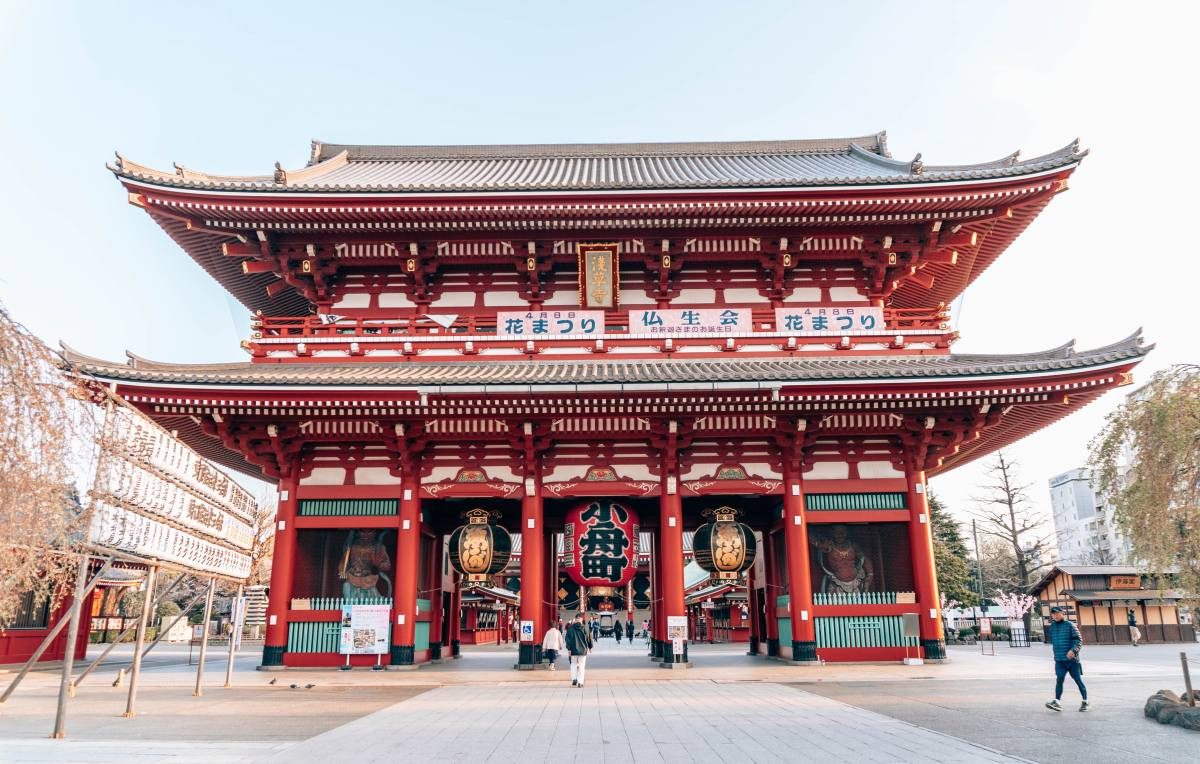
2. Stroll Around Harajku
From goths in black to colorfulkawaii (culture of "cuteness" and vulnerability in Japan) fashion, the quirky Harajuku neighborhood in Shibuya pulses with the life of Tokyo's youth. Small boutique and vintage shops share streets with high-end luxury brands, making this lively neighborhood a popular destination for both domestic and international tourists.
Takeshita Street is a very busy pedestrian shopping street, full of colorful cotton candy, adorable stores, and crepes. Harajuku is known for crepes.
If you have small feet, you will be tempted the get some pairs of shoes. They're absolutely adorable and cost about $10-15, and even though I'm not a big shopper I grabbed three pairs. Everyone on Instagram keeps asking me where did I get my shoes from!
Don't miss a store called Kiddy Land. If you're a fan of any Japanese character, chances are you can find it there. If you aren't, still pop in and see some cute and other weird items.
If you have time pop into Tokyu Plaza – a shopping complex at the intersection of Omotesando and Harajuku. The entrance is beautifully architected with mirror covered escalator and there is a rooftop terrace on the 6th floor offering a great view of the surrounding area.
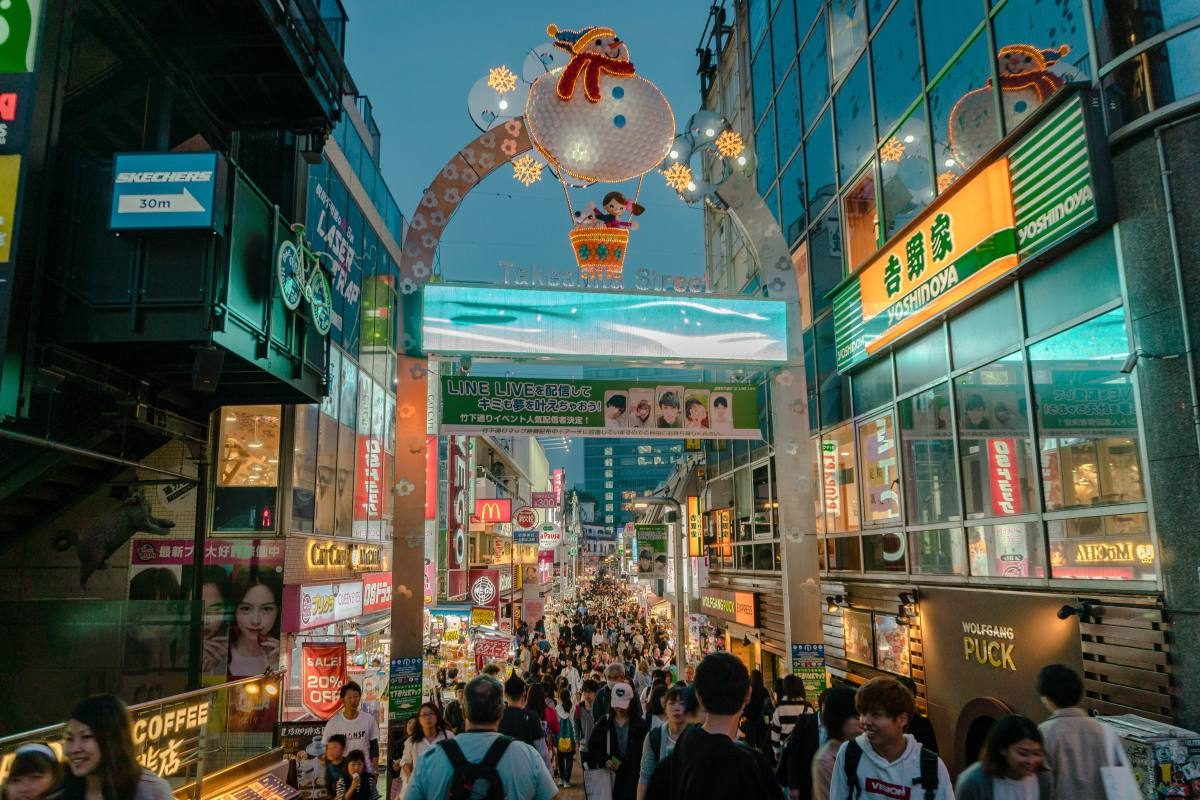
3. Cross Shibuya Crossing
Shibuya Crossing, thebusiest street crossing in Japan (and likely the world). The intersection connects a district with two of the busiest railway stations in the world. When all four lights turn red at once, dive into the chaos. If you want to see it all from above, pop into Starbucks on the 1st floor – it has the best view!
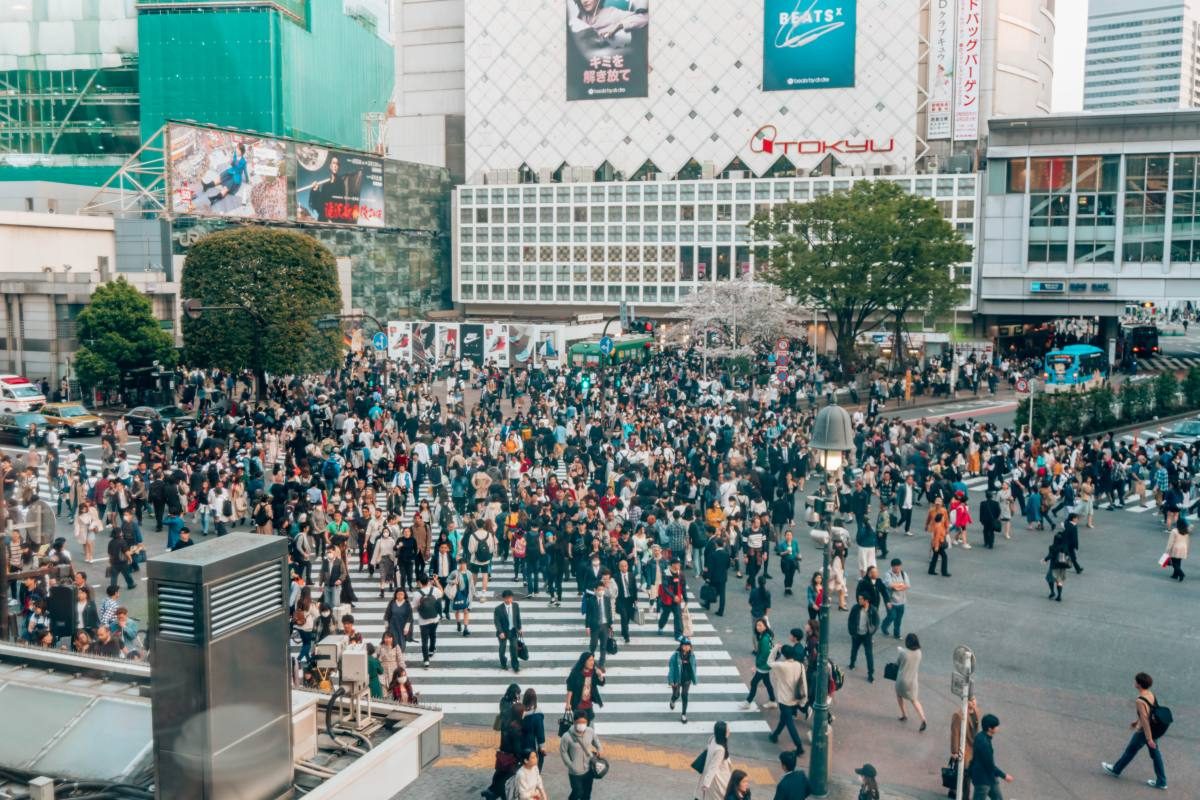
4. Sleep in a Capsule Hotel
Maybe you're looking for an inexpensive place to crash for the night. Or maybe you want to experience what it's like to wake up in a CAT Scan machine. Either way, capsule or 'pod' hotels have you covered. They're scattered throughout Tokyo and offer the bare necessities when it comes to accommodation.
Most have a common room, shared bathrooms, and 'pod' bedrooms stacked two-high with ladder access. Some pods are only as big as a single bed but provide outlets, wifi, and a locker to store your personal items.
A 'room' runs about $30-50 USD/night on average, and you'll find everyone from backpackers to businessmen booking these little guys. Avoid these if you're claustrophobic. If you're not sure, booking a capsule is a great way to find out and a must-do in Japan.
My personal recommendations for capsule hotels would be Book and Bed (sleep among books), and The Millennials (very modern spot with co-working space and adjustable beds).
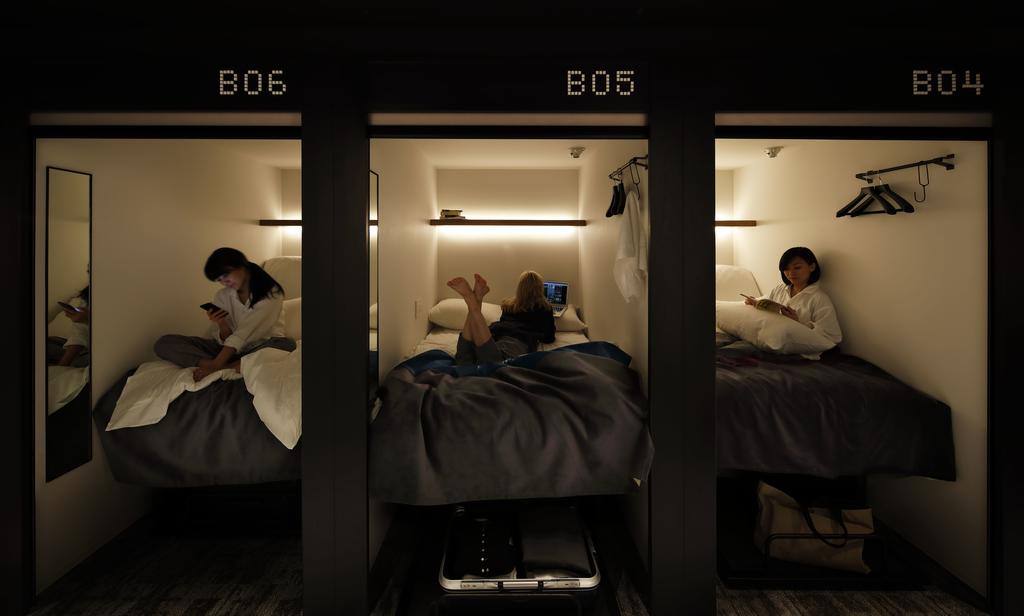
5. Visit Akihabara Electric Town
If Times Square and Best Buy had a baby who loved anime, that baby would be Akihabara Electric Town. Bright and colorful neon signs mark the entrances to countless electronic and gadget shops where you can pick up everything from a single fuse to a brand new camera. Yodobashi Camera takes up a large chunk of real estate here and boasts 9 (9!) floors of technological goodies.
Visit Akihabara Electric Town and embrace your inner otaku: "A young person who is obsessed with computers or particular aspects of popular culture to the detriment of their social skills".
6. Get Amazed by Japanese Toilets
Western countries are light years behind the Japanese in the toilet game. All the buttons features for your butt can overwhelm you at first. Plus, different models mean different ways to flush-a pretty important step in the process.
We'll let you mess around with them when you get there. After spraying water a time or two, you'll start to recognize which buttons perform which functions. You'll wonder how you're going to survive without them when you get home.
7. Buy Something From A Vending Machine
Japan also comes out on top when it comes to vending machines. Both in sheer quantity (there are more vending machines per capita in Japan than anywhere else in the world) and variety of goods sold. You can get collectible items, useless gimmicks, food, or anything you want from them.
As a traveler, this is especially exciting and useful. You can experience the novelty of buying canned bread or fishing bait instead of a Coke, and you can buy new underwear. Or some weird outfits for your cat…
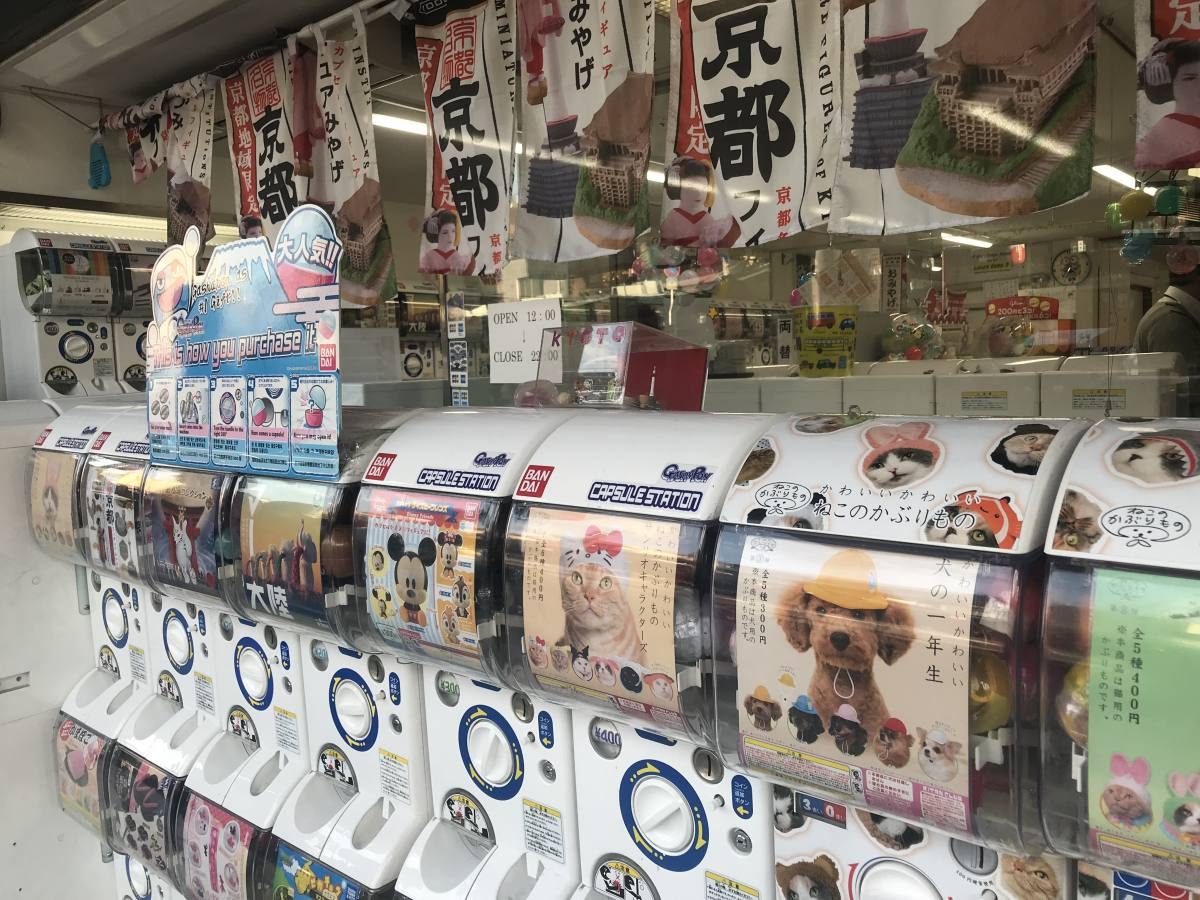
8. Relax at an Onsen
Unlike past generations, you no longer have to journey far from the city to rest and relax at one of Japan's onsen, or natural hot springs. Drilling into Tokyo's volcanic crust provided Tokyoites with their own access to the springs. Inns and spas sprang up around some of them, while city officials left others left as simple public baths. There are options for all budgets located throughout and around the city.
Tip for tattooed travelers: There's a slim chance you'd be taken for a mobster. But onsen managers may ask you to cover your tattoos or even deny access due to past problems with the yakuza.
9. Shop for Cute & Weird Things
Whatever you're looking to buy, Japan has it. I mean anything. Shop for stuffed kawaii or cat cartoons on one block and weird Kit Kat flavors on another.
Japan doesn't always separate the kawaii from the quirky. Buy realistic cat nose brooches or soft pillows that look like actual fish.
You can even get a 'secret anime tie'-business in the front, entertainment in the back. Make a game of it and see who can buy the weirdest souvenir.
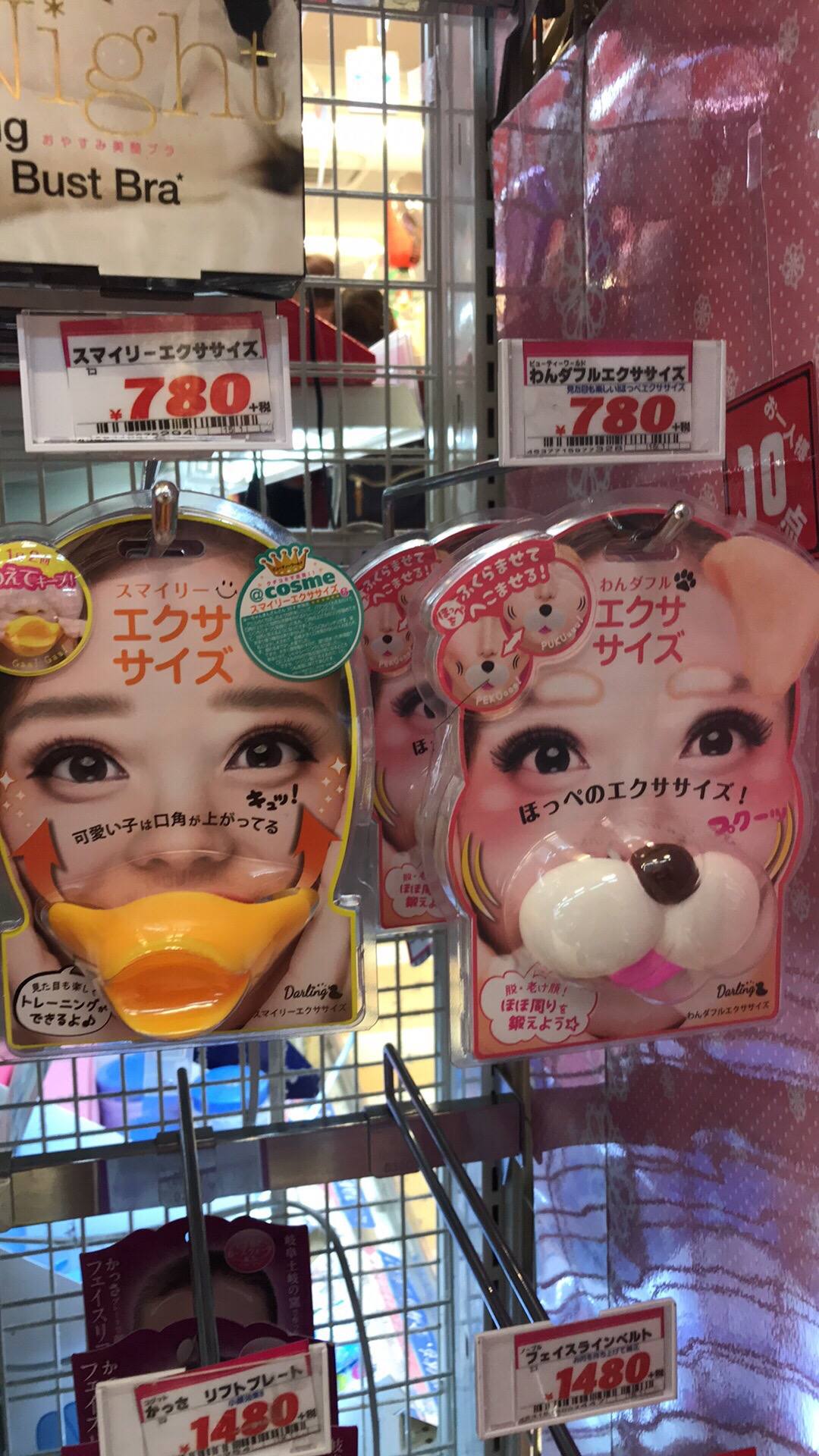
10. Eat at Themed Cafes
Tokyo cafes cater to fans of all kinds. Stop for a spot of tea withAlice in Wonderland, immerse yourself in cuteness at aKawaii Monster Cafe, or indulge your hedgehog fetish. It depends on what you're into. But whichever world you stumble upon, you'll find the experience.
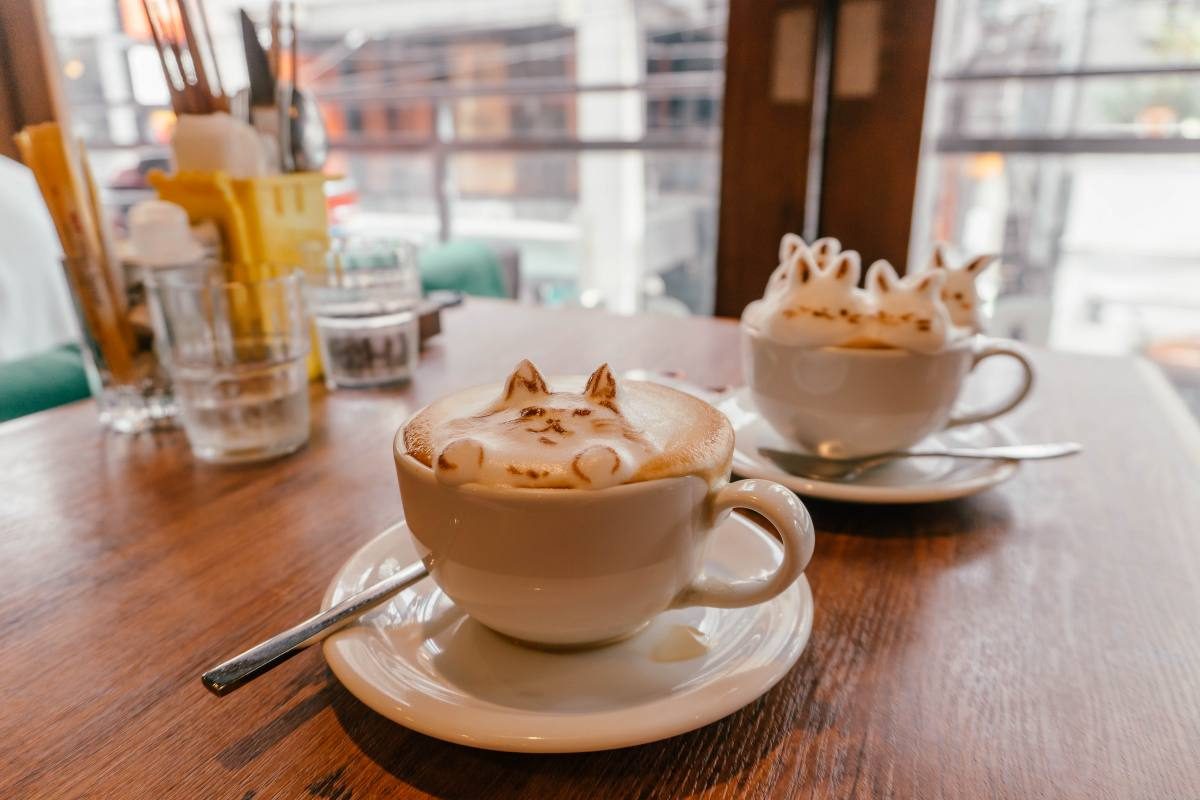
The strangest dining spot, in my opinion, would be Vampire Cafe. Japan's corrupt-mental-institution themed restaurant offers diners a chance to eat inside of filthy coffins and cocktails made of fake blood.
Ever wanted to feel like royalty? The kind that gets spoon-fed and massaged in a totally platonic way by their maid?
Stop in at one of thesecosplayMaid Cafes where workers dress as maids and wait on you hand and foot. Some maid cafes even offer games and activities at an additional cost.
You always need to pre-book your table a few days in advance, as all those places get full. If you purchase your tickets online you can visit two cafes in one afternoon.
- Robot Restaurant Show & Kawaii Monster Cafe Dinner
- Robot Restaurant Show & Alice in Wonderland Dinner
- Robot Restaurant Only Ticket
- Maid Cafe Experience

11. Attend a Tea Ceremony
One does not simply "make" tea in Japan. You use matcha. You take your time. And you distinguish yourself from members of other tea schools by the way you stir and serve and the color kimono you wear. Enjoy this cultural experience yourself. And yes, you get to wear a kimono, and even meet a geisha if you like.
Tip: if you're heading to Tokyo or Kyoto during cherry blossom season, you might want to pre-book your tea ceremony experience, as both places are full of tourists.
12. Take a Day Trip to Hakone – Mount Fuji
You've seen it immortalized in the famous woodblock The Great Wave off Kanagawa. In Fuji-Hakone-Izu National park about 2.5 hours by bus from Tokyo stands Mt. Fuji. The majestic landform represents good luck and fortune and is a symbol of the nation itself.
It's the highest mountain and the most climbed in Japan with summit climbs open from July until September. You can also hike at lower levels during springtime to see the cherry blossoms bloom.
Take Shinjuku Expressway Bus Terminal to the Fuji Subaru Line 5th station and start your 6-hour trek to the summit. If you prefer a more organized experience you can get a tour that lets you see multiple places in one day.
13. Take a Sushi Making Class
We take sushi for granted. It's delicious, it's healthy, it's convenient. But it's not as easy to make as you might think. Try your hand at rolling up some sushi with experts in the nation where the dish originated. Check out #20 for one of the best spots in Tokyo to learn how.
14. Spot a Godzilla in Shinjuku
Oh no, there goes Tokyo… Come on, you know you want to sing it with me.
In the heart of downtown Tokyo not far from the park mentioned above you'll find shops, bars, and restaurants-normal Japanese city locales. But stand beneath Toho Cinemas and look up to see the mean mug of none other than Godzilla herself (an original version, not the newer, neckless behemoth that looks like he ate one too many subway cars). The only move is to run for your life and pray for the city's salvation in one of Tokyo's historic temples.
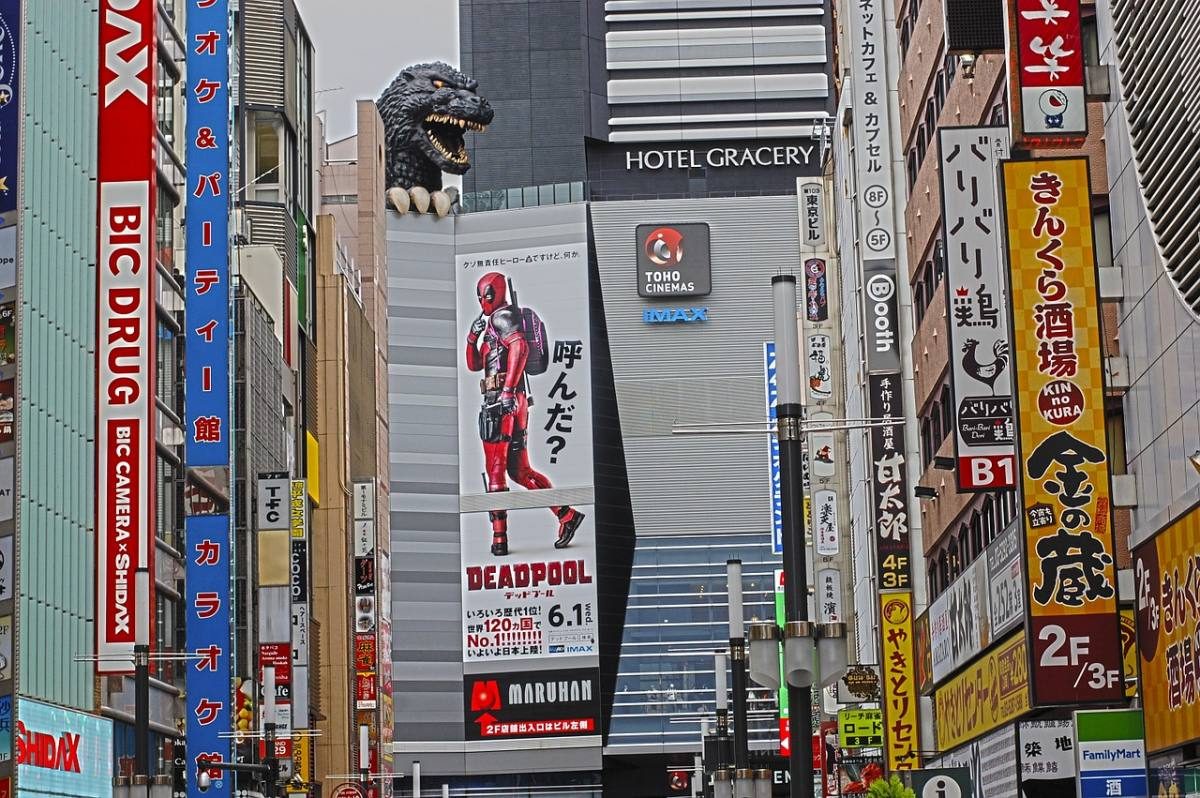
* See Cherry Blossoms (seasonal)
Japanese people are crazy aboutsakura – cherry blossoms. Every year, food and drinks become sakura flavored, merchandise turns into sakura-themed, and thousands of people storm the best spots to see it.
Japan boasts a world-famous display of cherry blossoms, a flower that has symbolized both the beauty and fleeting nature of life for centuries. The full blooming period only lasts for about a week in late March and early April before the blossoms begin to fall.
Every year the national tourism board releases a bloom calendar with dates for different cities. They're usually not wrong. Go right before the full bloom to avoid paying 3x the price for accommodation and to see it all slightly less crowded.
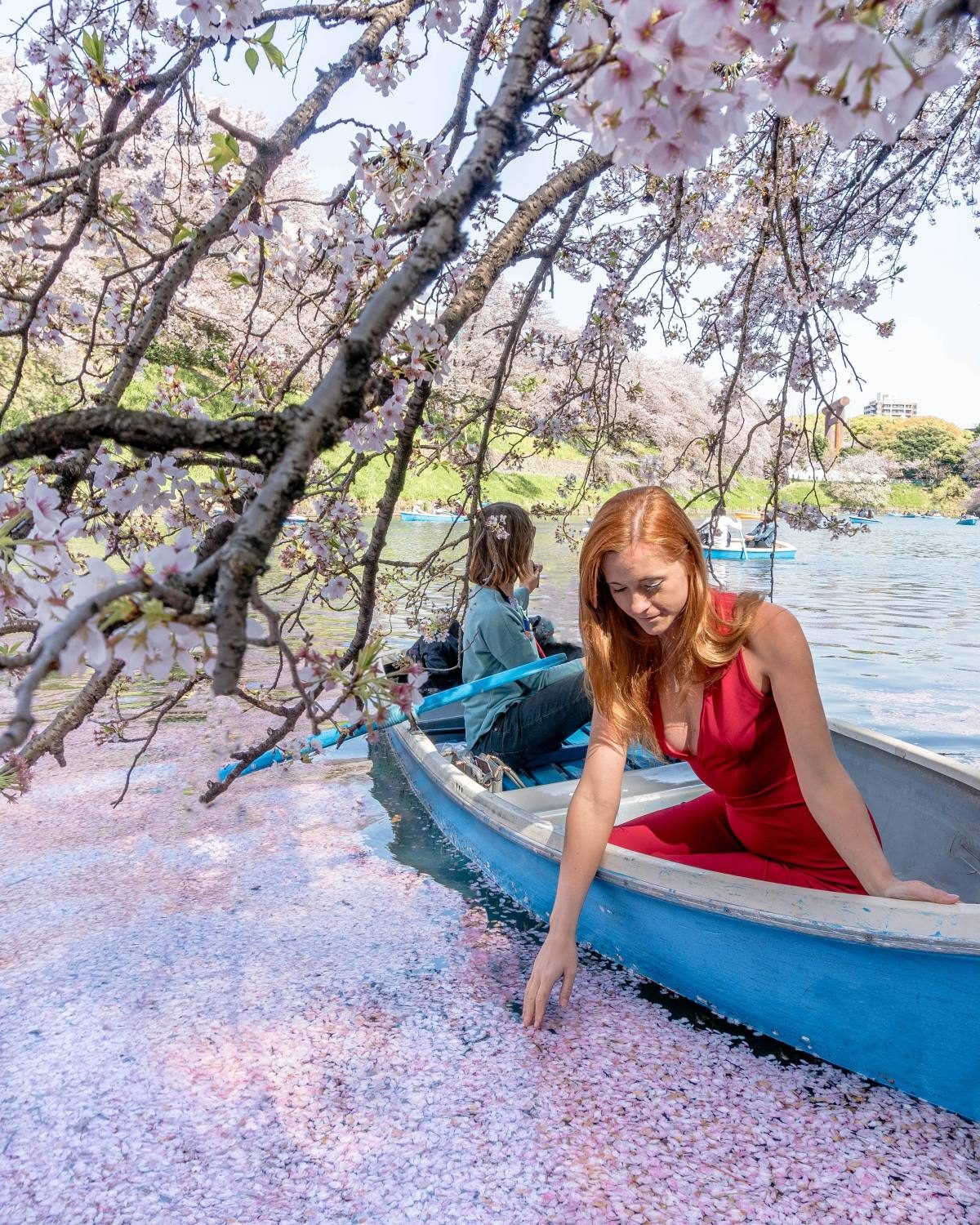
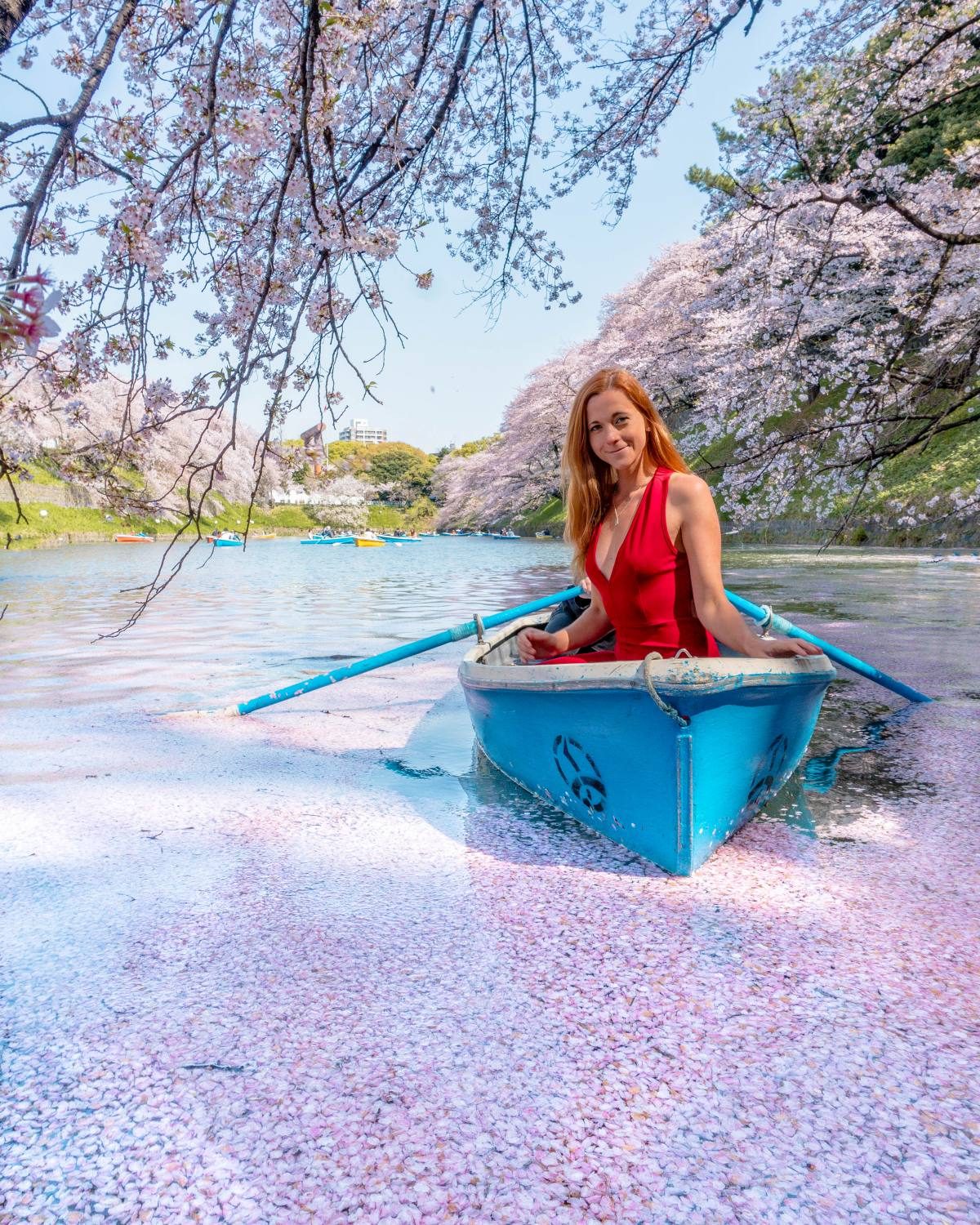
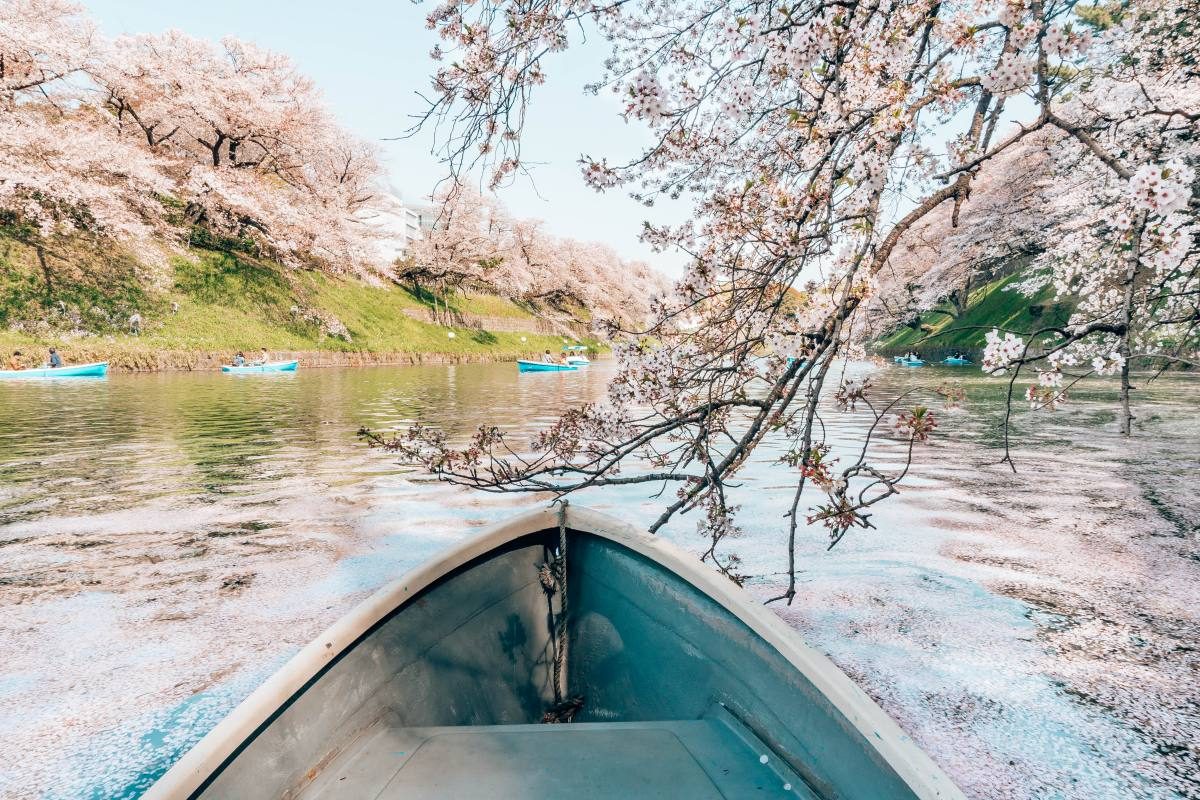
My favorite spot for viewing sakura in Tokyo isn't Ueno Park, but Chidorigafuchi Park. It's home to 170 different types of cherry blossoms with different blooming periods, so the spectacle occurs over time. During the annual cherry blossom festival, the paths of Chidorigafuchi are lit up in a wondrous display and boats are also available for pleasure cruising.
Another quiet spot for viewing cherry blossoms and getting a cultural experience is a visit to the Yanaka Cemetery. I stumbled upon this place by accident. It's located next to Yanaka Ginza and Nippori Station.
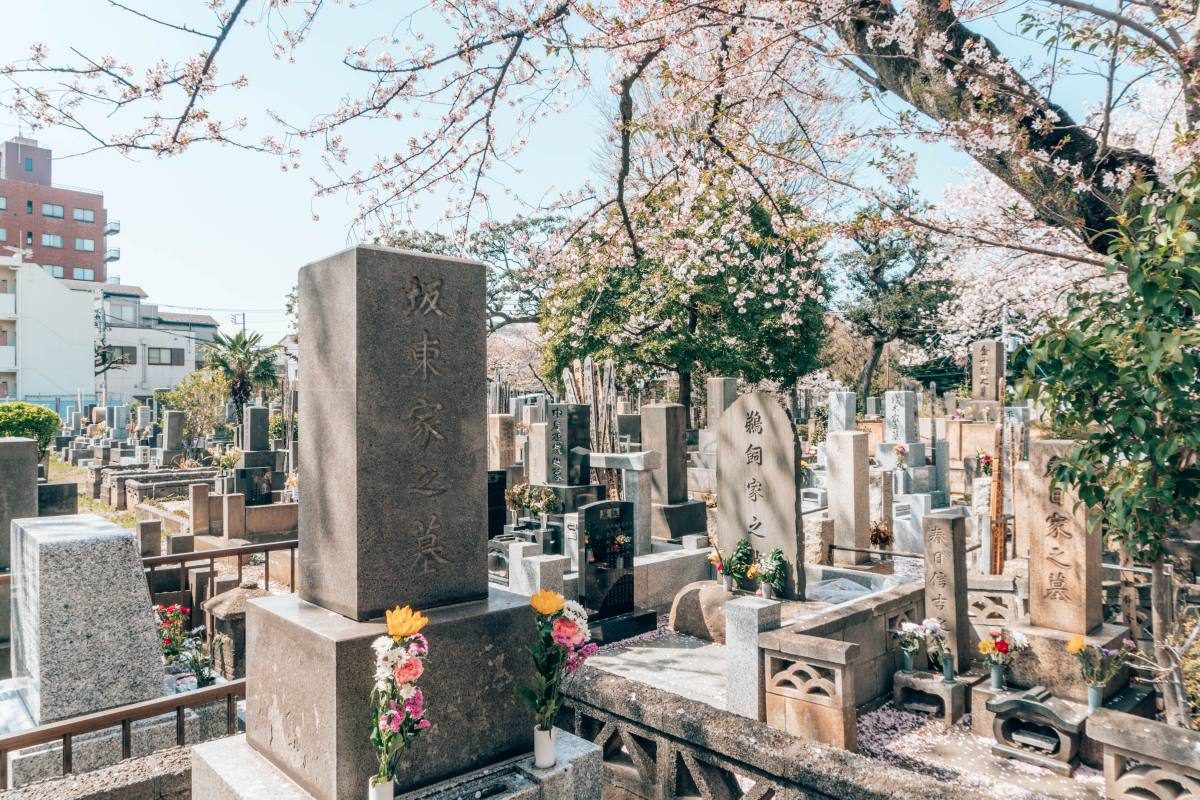
Tokyo Temples to Visit
15. Kan'ei-ji Temple
History buffs will love this temple in Ueno park. Built in 1625, this Tendai Buddhist temple maintained support through the years from the last feudal Japanese military government-the Tokugawa shogunate.
In fact, 6 of 14 Tokugawa shoguns lie buried here, and it was the site of the last stand of the final shogun against the revolutionary army loyal to the emperor.
Walk through the park to see a nearby 5 story pagoda and a statue of Saigo Takamori who stormed the main gate of the temple with his Imperial forces in the final battle. To skip the longer stroll, get off at nearby Uguisudani Station and walk 9 minutes to the temple.
16. Sougenji Kappa-Dera Temple
The area of Kappabashi became infested long ago with kappa-an amphibious, turtle-like demon creature hell-bent on obtaining the magical spheres found in our butts. To make them go away, locals constructed this Buddhist temple to appease them. It's even rumored to host one of the creature's mummified hands.
Do your part to keep them happy when you visit and bring offerings of cucumbers to place near the many kappa statues on the grounds. Don't agree to wrestle if you see one – they're accomplished grapplers.
17. Gotokuji Temple
When a cat waves you down, it's best to see what it wants. Rumor has it this temple in the Setagaya district called Gotokuji Temple is the birthplace of the maneki-neko (beckoning cat).
It's said during the Edo period a cat led a feudal lord to safety during a storm. To commemorate the event, locals began carving statues of cats with one paw raised. If you're afraid of a kappa encounter, these cats are a safer bet.
Get off Gotokuji station and walk 5 minutes to see hundreds of these friendly felines. There are pretty much no tourists around, just locals, so it's a refreshing experience.
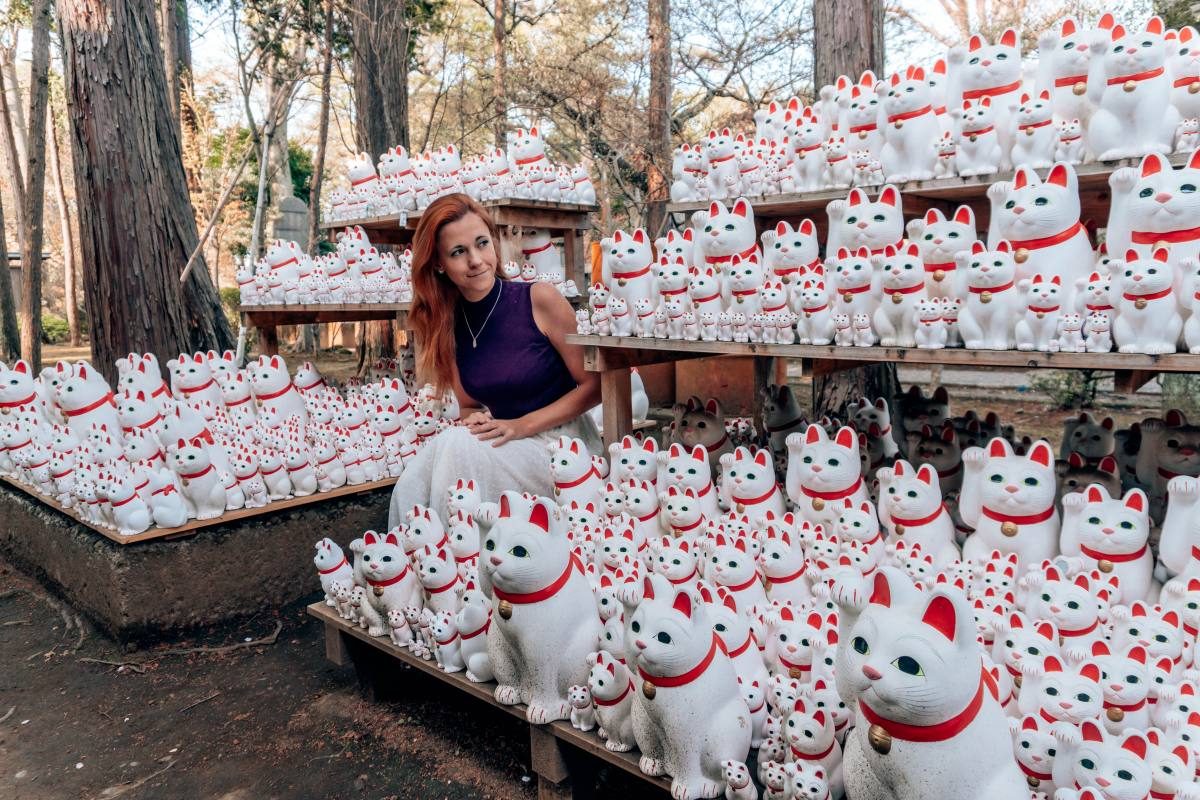
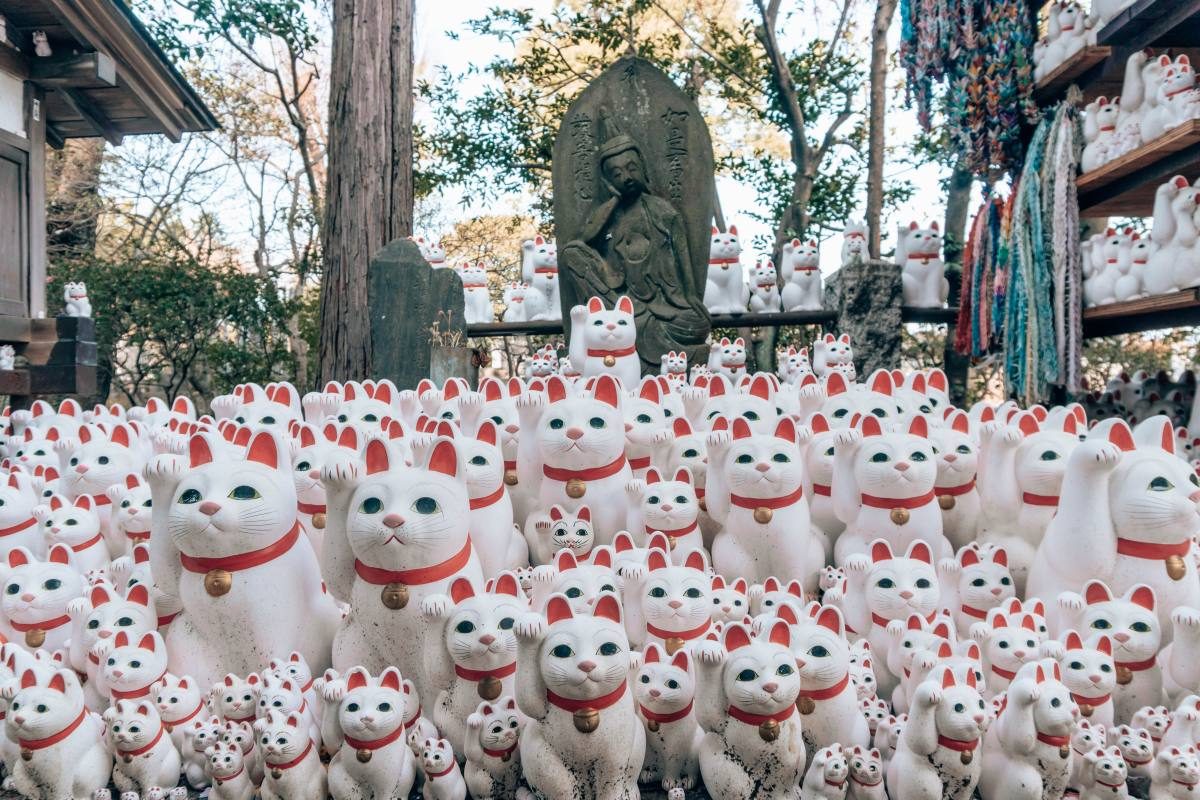
18. Yasukuni Shrine
In the Chiyoda district, you'll find one of the most controversial historical landmarks in Tokyo. Large gate curtains emblazoned with the Japanese Imperial Chrysanthemum mark the entrance to the Shinto shrine built in 1869 to commemorate those who died in service of Japan.
But the controversy stems from the fourteen WWII 'Class A' war criminals enshrined here. If you'd prefer to visit the temple but avoid the debate, experience the Shinto festivals honoring the ancestral gods of Japan in Spring and Autumn.
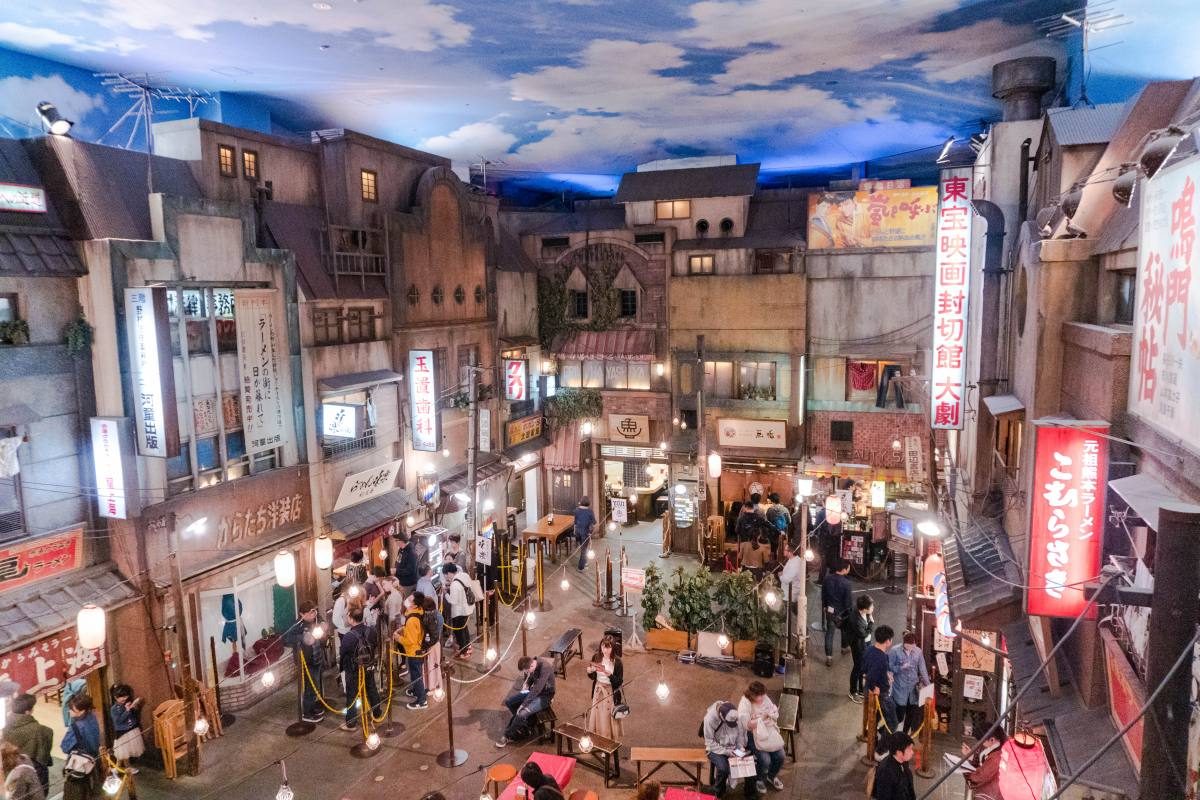
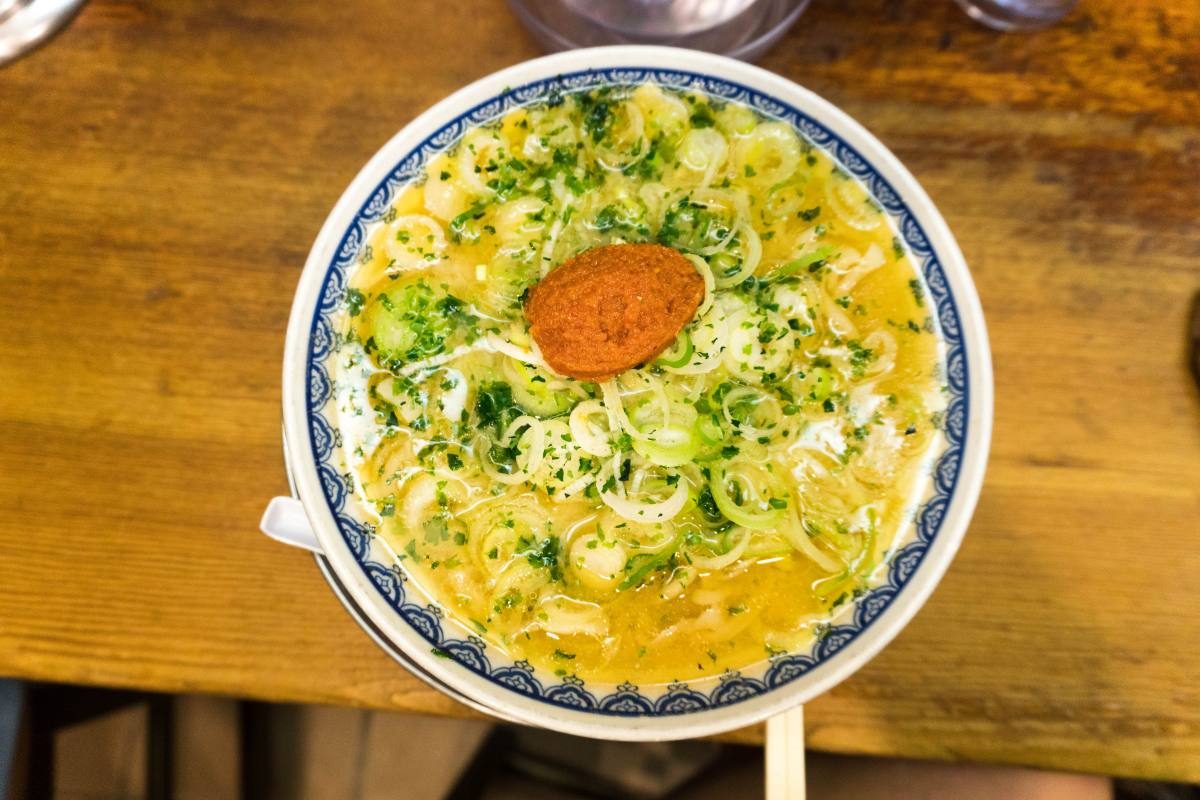
Places to Eat in Tokyo
19. Eat Sushi & Watch Tuna Auction at Tsukiji Fish Market
'Wicked tuna' takes on a whole new meaning at Tsukiji Fish market, the largest fish and seafood market in the world. Products arrive from all over the world for early-morning auctions at the inner wholesale market. Tsukiji officials limit auction entrance to 120 visitors, so expect to wait in line around 4 am or earlier for a chance to watch.
If you don't make it into the auction, don't worry. Wander through the shops and restaurants of the outer market and grab some fresh sushi at Sushi Dai or one of the many spots nearby. As weird as it might seem to have sushi at 7 am for breakfast, that's what locals do. You can even make your sushi there.
20. Stuff Your Face with Ramen at the Ramen Museum
Ah, the good ol' college days. Ramen will always have a place in our hearts as the quick, cheap, and salty noodle that fueled our late-night study sessions.
But to truly appreciate this food, you've got to go back to 1950's Tokyo at the Ramen Museum in Yokohama. It's designed to look like the period when ramen mania struck Japan's capital, complete with mini-stores serving different flavors of the famous dish.
The place reminded me of Ramen-themed Las Vegas, with fake cloudy ceiling and performances. Entry is about $2.80 USD + your bowl of ramen inside (about $5-9 for a giant bowl). Vending machines sell tickets for the individual bowls outside of the shops.
Prepare yourself for long lines, but trust me – it's worth the wait. Unless you're a big guy get half portion, as even very hungry visitors struggled to finish.


21. Yokohama Cup Noodles Museum
If you didn't get your noodle-fix at the Ramen Museum, head over to the nearby Yokohama Cup Noodles Museum. Here you can design your own cup noodles and make your own noodles from scratch to take home.
You'll learn about cup noodles for astronauts and try samples in their indoor "night market".
The entry is about $4.50USD. Workshops and cup noodles cost extra. If you want to make your own noodles, you should also sign up for soba noodles making class.
22. Have Lunch with a Moomin
Japanese culture is nothing if not sympathetic (check out #31 for a crazy example). The 'anti-loneliness' Moomin Cafe in central Tokyo seats guests with a stuffed hippo-like character to keep you company while you dine on Finnish bread and sip your coffee.
The cute, white hippos are the creation of writer/illustrator Tove Jansson, a Helsinki native. They'll sit at your table to help you avoid the awkwardness of eating alone, or simply accompany your entire family.
Lines run out the door as they don't take up reservations. Try a weekday trip for less wait time, but still expect to wait about an hour.
P.S. If you don't know Moomins you're missing out. It's THE childhood cartoon of Europeans.
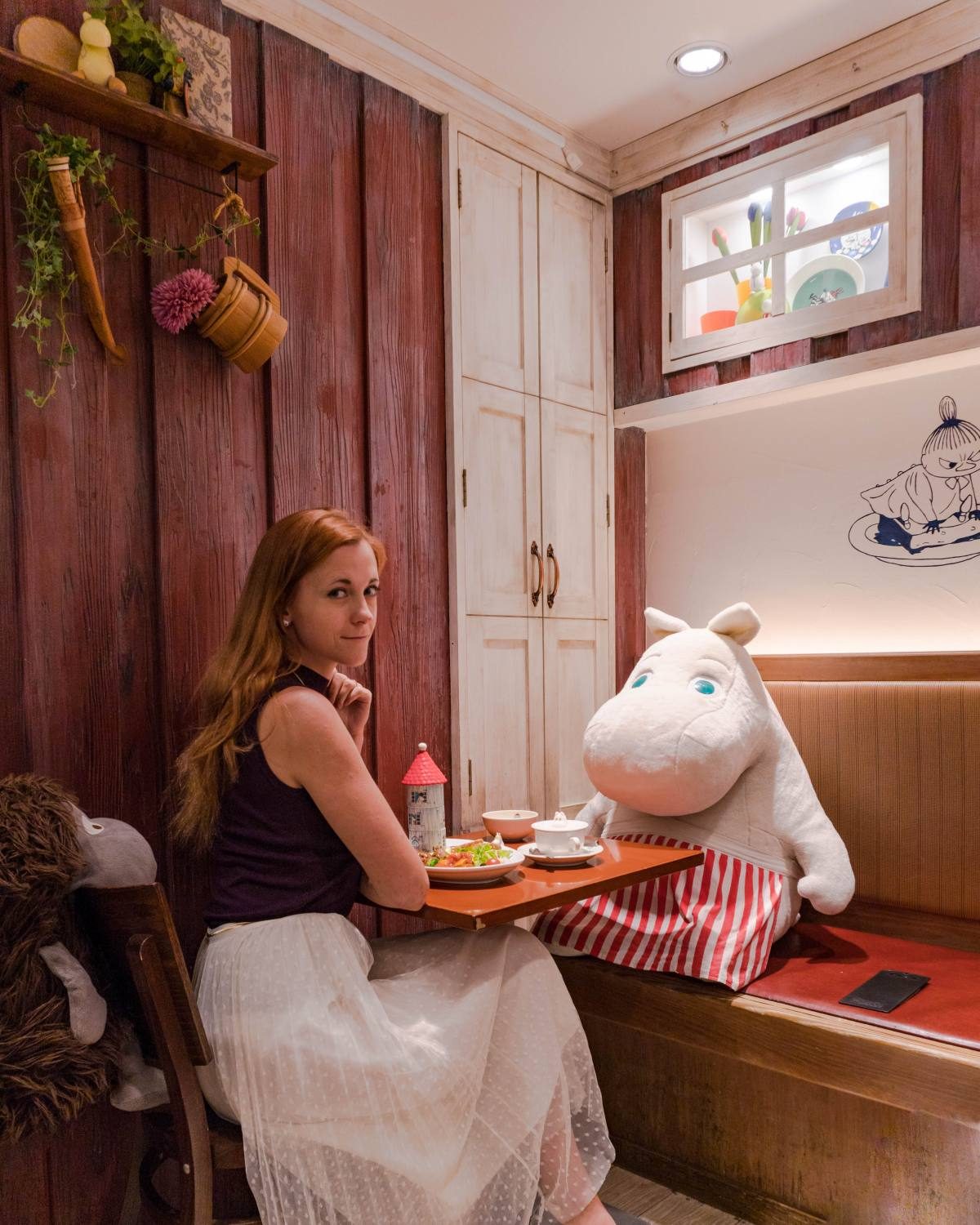
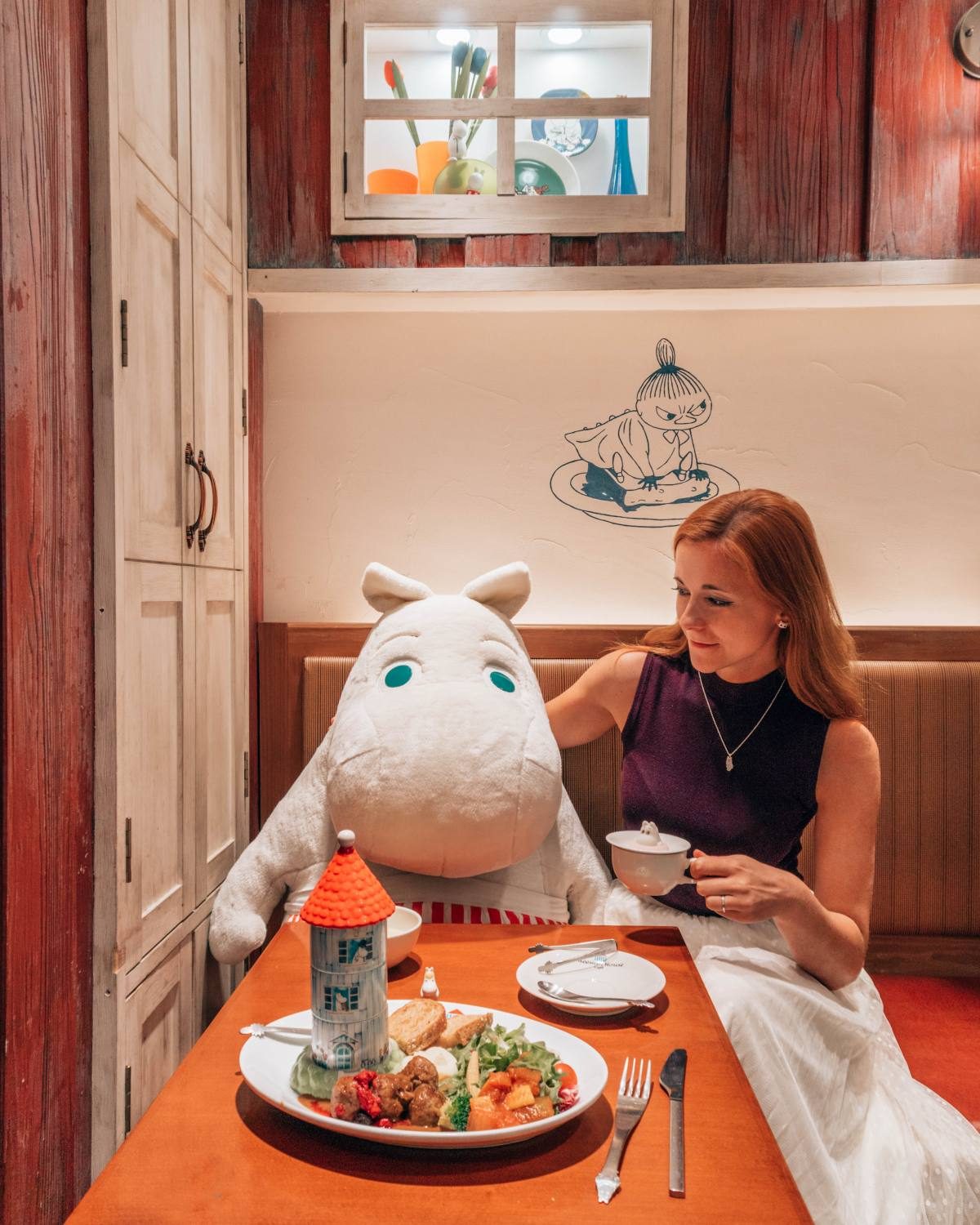
23. Eat a White Japanese Strawberry
If Fallout had mutated strawberries growing around the wasteland, they'd look like this. Yasuhito Teshima claims to have created the original version of these giant white strawberries after years of crossbreeding at his farm in Saga Prefecture.
These rare 'white jewels' grow much larger and taste sweeter than regular strawberries. It'll set you back about $10 to get your hands on ONE of these beauties, but when in Japan…
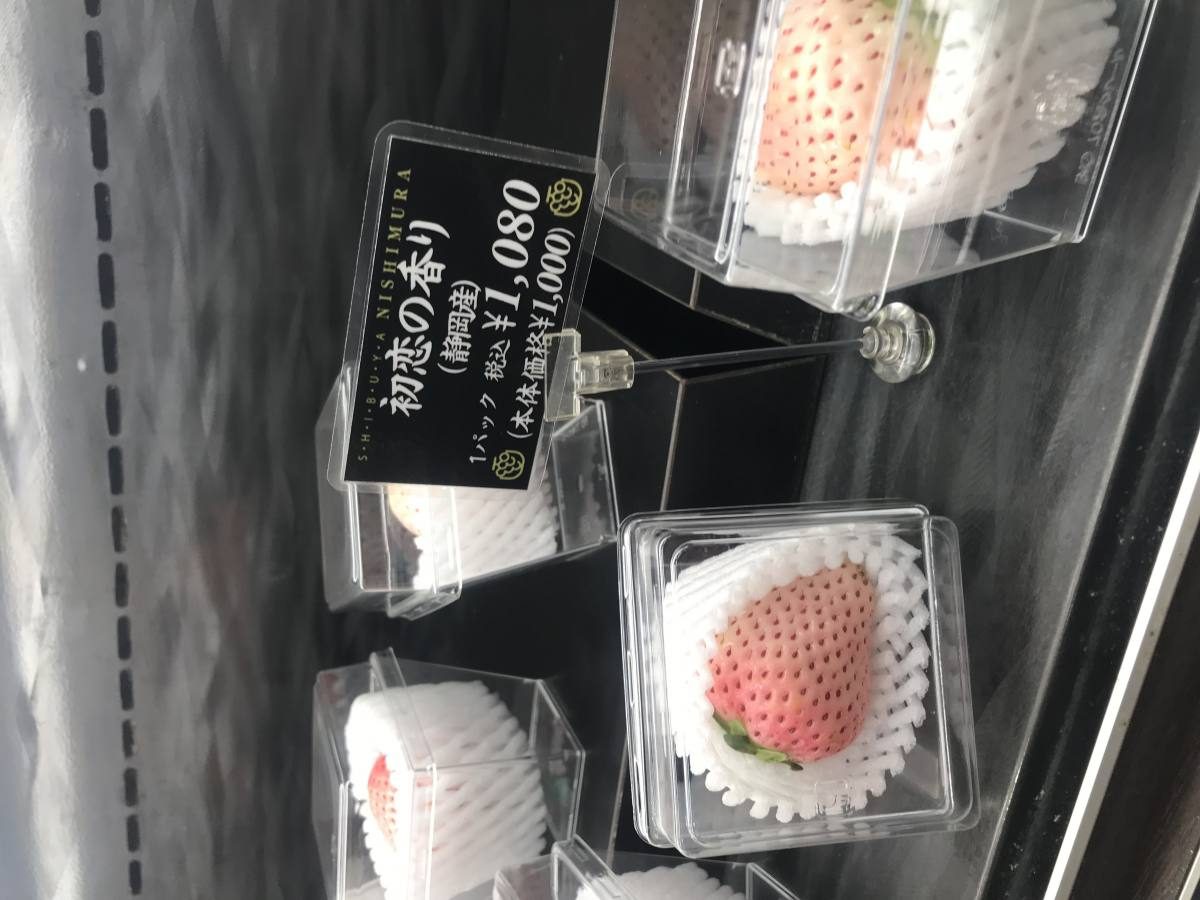
24. Eat Dinner of Your Nightmares at Alcatraz ER or LockUp
Tokyo is home to many themed eateries in the nation's capital catering to all interests and subcultures. Share meals with samurai, gobble with ghosts, feast while fishing. You can even "visit" Kyoto.
Steel your nerves for a morbid meal in one of Shibuya's creepy prison and prison hospital themed izakayas. Staff will "lock you up" to start your night of incarceration. Try banging your tray on the bars to get some service.
These venues aren't known for their food, and the main dishes are often overpriced. However, the experience of getting drinks mixed by dildo-wielding waitresses in nurse outfits, taking your trail mix "pills" as a patient, and eating what looks like human brains is worth it. Both locations are fun for groups. Leave the kids at home, though.
Things to Do in Tokyo at Night
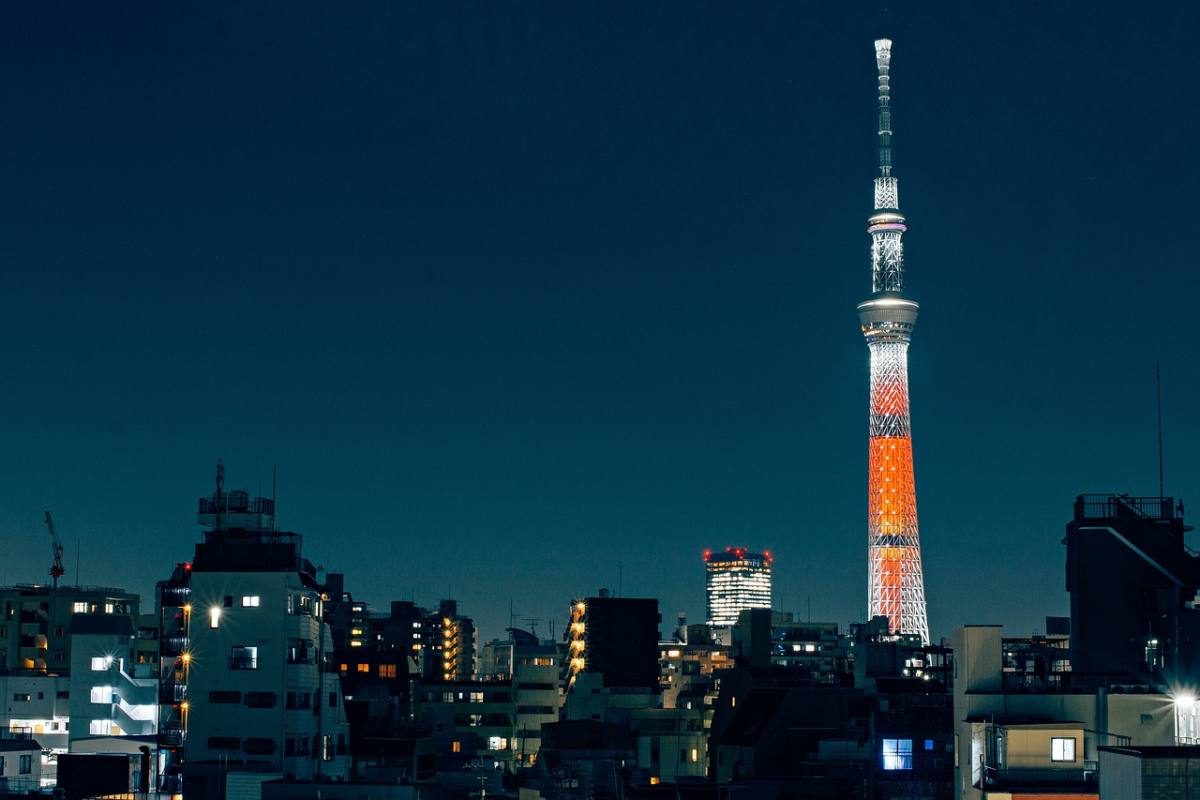
25. See the Skyline from Tokyo Tower or Tokyo Skytree
After spending the day roaming Tokyo's streets, head to Tokyo Tower or Tokyo Skytree to take in the chaos of this sprawling city from above. Tokyo Tower stands in the Minato business district. It's hard to miss, as it looks like the Eiffel Tower. This gives a closer, more intimate look at the people walking the streets below.
On the other hand, the Skytree in Sumida Ward watches over the capital at almost twice the height of the Tower. It's the second-tallest self-supporting structure in the world and the tallest tower in Tokyo. You can even see the Tokyo Tower and Mt. Fuji from the top on a clear day.
Both towers are beautifully lit at night, as is the city stretching out below.
26. Sleep in a Hello Kitty Hotel
If you didn't know, Hello Kitty is kind of a big deal in Japan. It's impossible to escape pink at Keio Plaza Hotel's Hello Kitty rooms in Shinjuku Ward. You get Hello Kitty room service with Hello Kitty-shaped sandwiches, omelets, and latte art. Plus, you can take home a Hello Kitty writing kit, doll, and moisturizers to remember the famous feline.
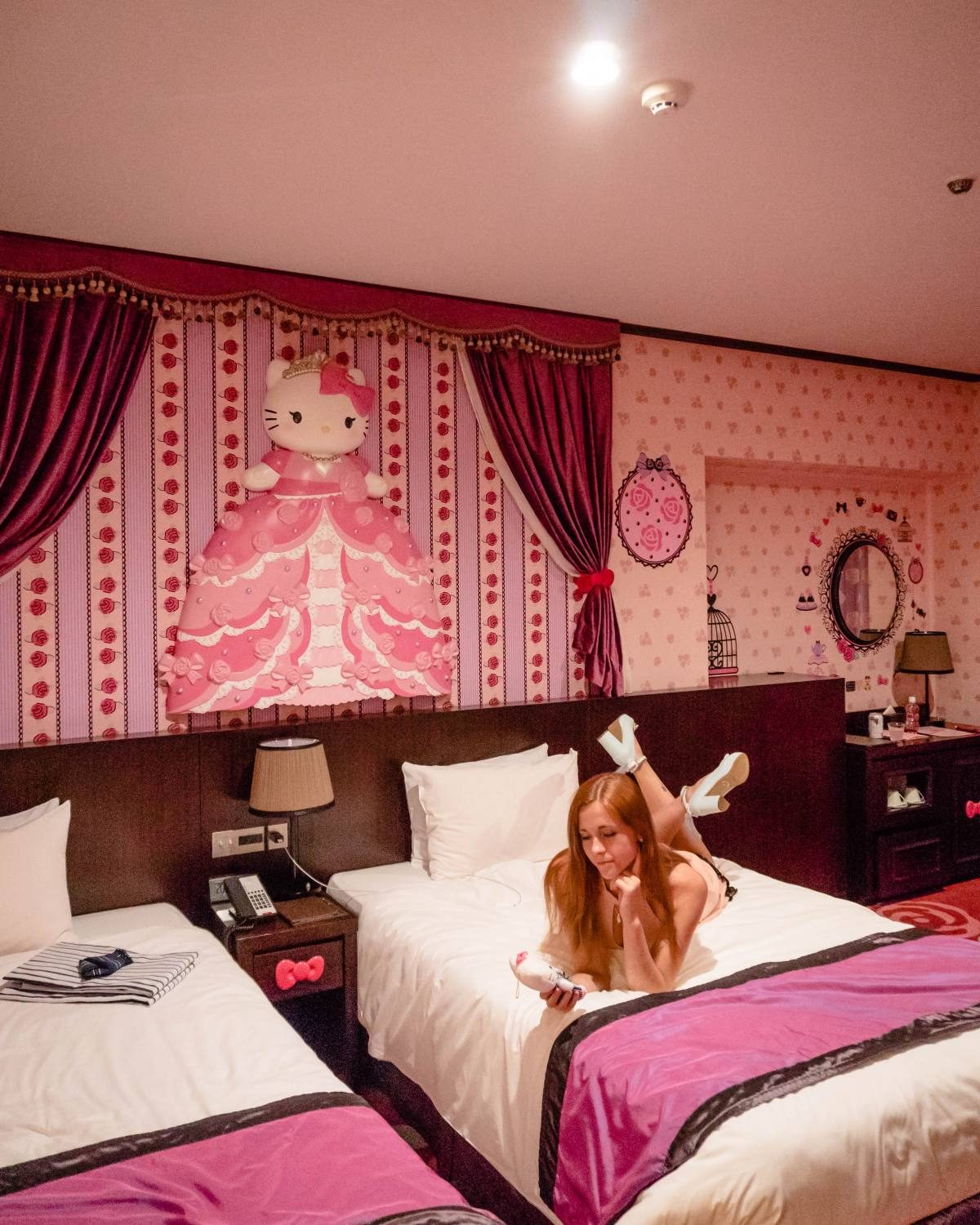
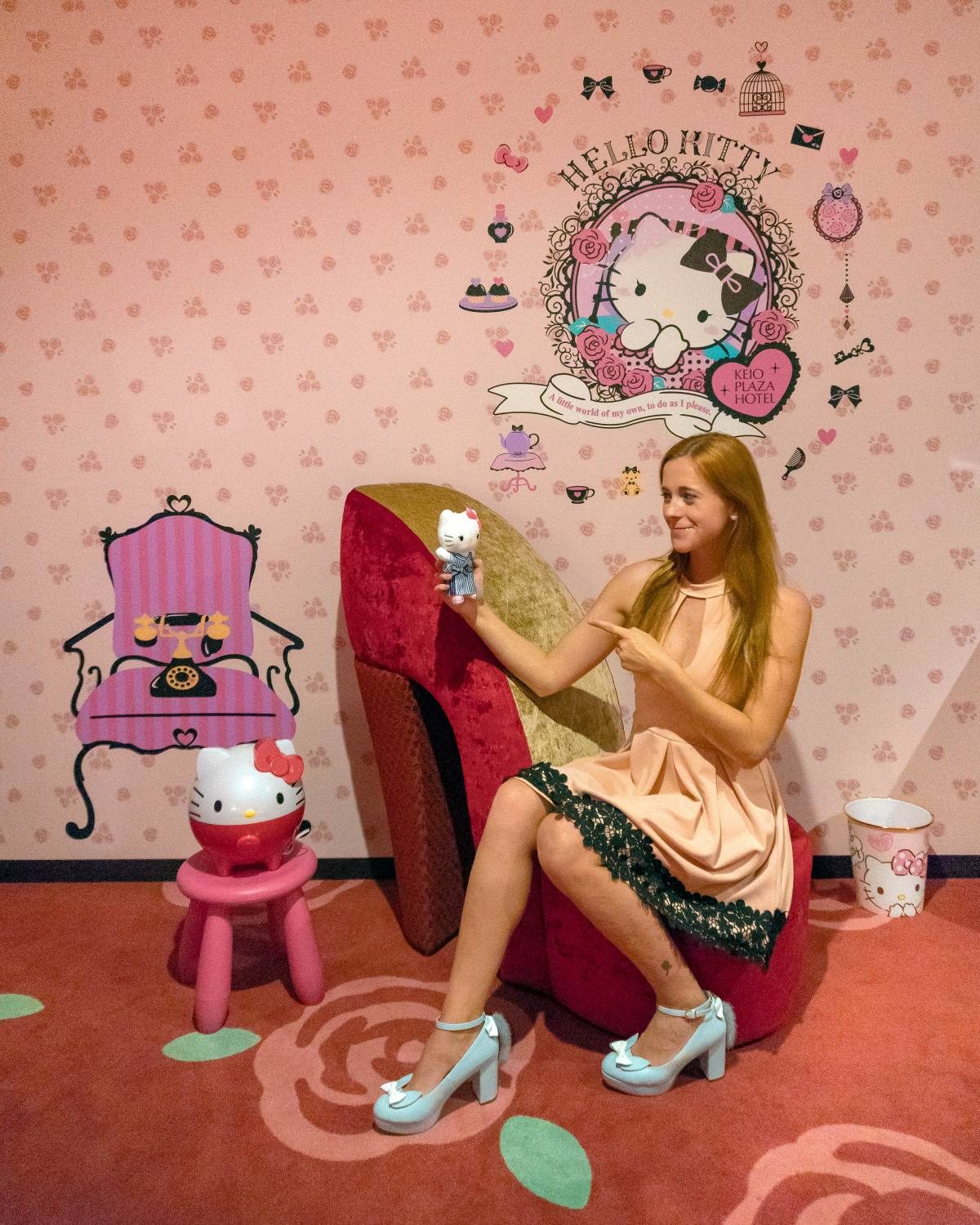
27. Visit Disneyland for a Lower Price
Meet Mickey and company in Tokyo with cheaper tickets and a more straightforward usage structure than the US Disney parks.
Here's how it works:
1-2 day passes=no park hopping. 3-4 day passes allow park hopping on days 3-4. Ignore the other options if you're just there for a normal week vacation. Note that Disneyland and DisneySea are not close by like in Anaheim, so it takes time to hop between parks. Pre-book your tickets here.
You can easily spend two days at each. If you're worried they won't live up to their US "counterparks", both Tokyo Disney parks have won industry awards since opening.
28. Admire Light Shows at Gardens
Once popular only in winter, these beautiful light installations now run in summer, too. In summer months, check out the Tokyo Tower Milky Way show or the Tokyo Midtown, which features "fireworks" shown on a light board from the three major fireworks shows in Japan.
Midtown also lights up for winter with the Midtown Christmas illumination and 'Starlight Garden'. A stunning winter wonderland lights up the Caretta Shiodome a short metro ride away.
The best part is they're free to visit. Enjoy the show, and good luck getting Kanye out of your head.
29. Go to an Owl Cafe
For about $13USD/hour at Fukuro No Mise Owl Cafe in Akihabara you get owl playtime and a soft drink. Hold them on your arm, kept close by a small string around your finger. Watch them sleep or attempt to eat one another. Relax in the calm lighting of this tranquil cafe.
Warning: I visited this cafe a few years ago and I can vouch for them. The place is only open in the afternoon/evening so owl can get some daytime sleep, and most owls don't live there full-time. This year, I was distressed to see that many new owl cafes popped up and not only they're open all day, but also use the owls to promote the establishments on the street, without any water or shelter. Please, if you see an owl being mistreated, don't support this establishment.
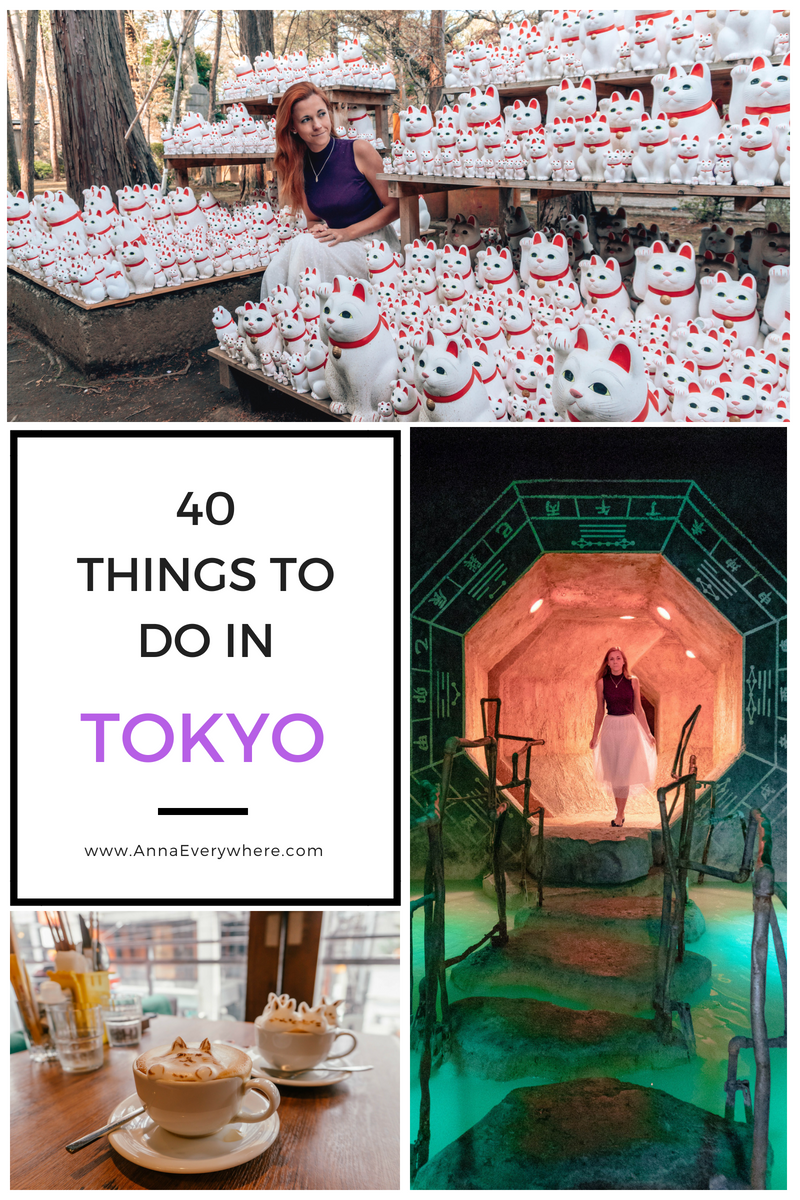
Whether you're visiting to educate or entertain yourself, Tokyo makes sure you leave having done both. If you're interested in day trips from Tokyo, visit my friend's post and also check whether you need a JR Pass. If you're looking for a full itinerary for your visit to Japan click here.
Any questions about Tokyo? Ask me below!
thompsonwaguastind1993.blogspot.com
Source: https://annaeverywhere.com/things-to-do-in-tokyo-japan/
0 Response to "Funny Japanese Commerical Automatic Bed Robot Mattress Commercial"
Post a Comment